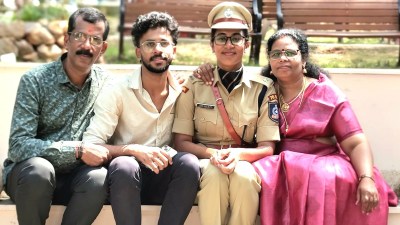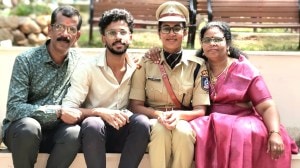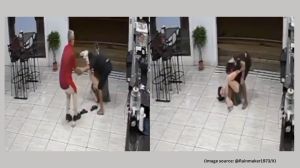Pak referendum: Many say yes when they mean no
Amidst blatant instances of rigging and squabbling over the turnout, Pakistan today voted in the referendum to extend General President Perv...

Amidst blatant instances of rigging and squabbling over the turnout, Pakistan today voted in the referendum to extend General President Pervez Musharraf’s rule by five years. Initial results are expected to start trickling in during the night.
The government described the turnout as ‘‘unprecedented’’ and said it would not be surprised if it topped 30%, while Opposition parties, which boycotted the exercise, put the turnout at 5% and said Musharraf had lost all legitimacy and should step down.
But Musharraf, voting in Rawalpindi after midday, said he was ‘‘very confident’’ of a victory. The General kept aside his military uniform to vote in a cream sports shirt and black trousers, and was accompanied by his wife and mother. ‘‘It (the turnout) was far beyond our expectations,’’ said Information Minister Nisar Memon told a news conference. ‘‘A silent majority has fully participated in the voting.’’
Memon added, ‘‘In the last general elections in 1997, the largest political party that formed the government got 16 % of the votes polled. We should be better than 16 %. I wouldn’t be surprised it is about twice as much.’’ But evidence emerged that the state machinery was being used to influence the result, with many public sector employees saying they had been pressured into casting their ballot.
A Reuters team saw ballot boxes being stuffed with ‘‘yes’’ votes by an official at one polling station in Rawalpindi. ‘‘I have been told by the principal to complete 500 votes at my booth,’’ the official told Reuters, explaining that only 150 people had cast their votes. ‘‘What can we do? We are government servants and we have to do our job.’’
Also in Rawalpindi, around 100 employees of the state’s Water and Sanitation Authority arrived at the Islamia High School polling station with their superiors. ‘‘We are being dragged to vote,’’ complained one employee, who declined to give his name.
Journalists also saw a police inspector open several ballot papers at the polling station to see which way people had voted, and he also brushed aside polling agents’ objections when one man turned up to vote without an identity card. In Lahore, a group of around a dozen people, each with both thumbs marked with indelible ink indicating they had already voted twice, turned up at one polling station to try to vote a third time, but were refused permission.
At several polling stations in Peshawar indelible ink was not being used, and local councillors openly told people to vote ‘‘yes’’. ‘‘While working in government, you can’t say ‘no’,’’ said one civil servant voting alongside his colleagues in Islamabad. The government denied putting pressure on its employees. ‘‘If you force me to go and vote, you cannot force me to say ‘yes’,’’ Information Secretary Anwar Mahmood told Reuters. ‘‘If you force me, I will go and vote ‘no’.’’
Photos


- 01
- 02
- 03
- 04
- 05




























